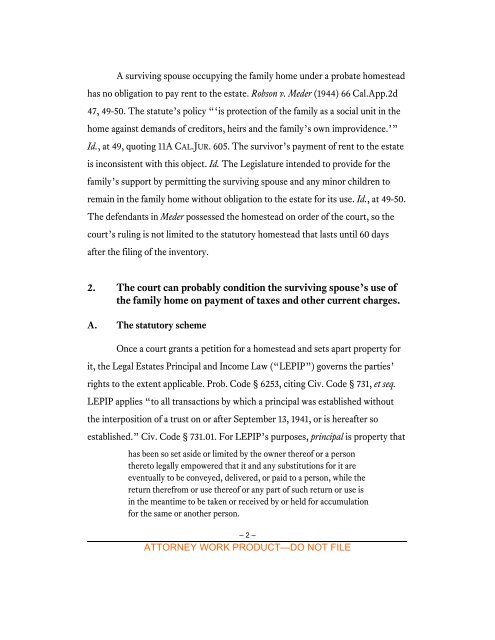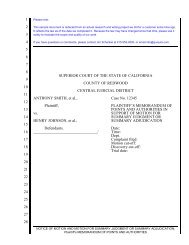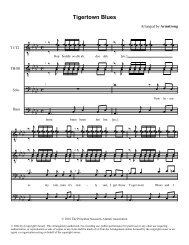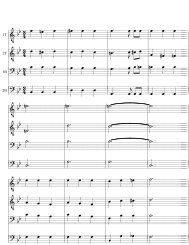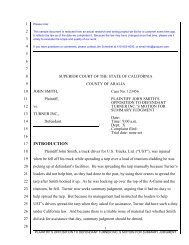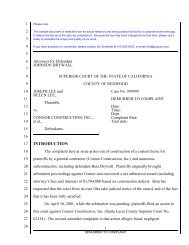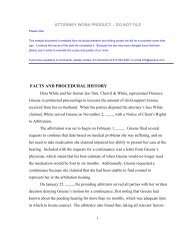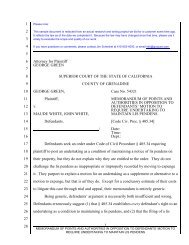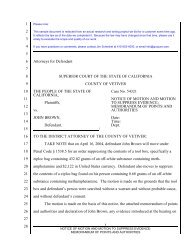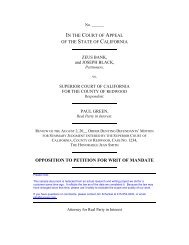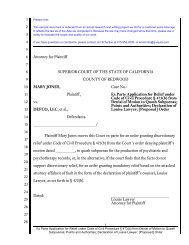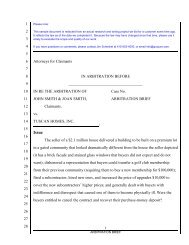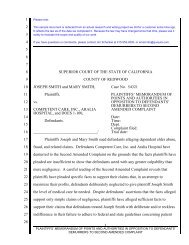Memo re probate issue - Quo Jure Corporation
Memo re probate issue - Quo Jure Corporation
Memo re probate issue - Quo Jure Corporation
You also want an ePaper? Increase the reach of your titles
YUMPU automatically turns print PDFs into web optimized ePapers that Google loves.
A surviving spouse occupying the family home under a <strong>probate</strong> homestead<br />
has no obligation to pay <strong>re</strong>nt to the estate. Robson v. Meder (1944) 66 Cal.App.2d<br />
47, 49-50. The statute’s policy “‘is protection of the family as a social unit in the<br />
home against demands of c<strong>re</strong>ditors, heirs and the family’s own improvidence.’”<br />
Id., at 49, quoting 11A CAL.JUR. 605. The survivor’s payment of <strong>re</strong>nt to the estate<br />
is inconsistent with this object. Id. The Legislatu<strong>re</strong> intended to provide for the<br />
family’s support by permitting the surviving spouse and any minor child<strong>re</strong>n to<br />
<strong>re</strong>main in the family home without obligation to the estate for its use. Id., at 49-50.<br />
The defendants in Meder possessed the homestead on order of the court, so the<br />
court’s ruling is not limited to the statutory homestead that lasts until 60 days<br />
after the filing of the inventory.<br />
2. The court can probably condition the surviving spouse’s use of<br />
the family home on payment of taxes and other cur<strong>re</strong>nt charges.<br />
A. The statutory scheme<br />
Once a court grants a petition for a homestead and sets apart property for<br />
it, the Legal Estates Principal and Income Law (“LEPIP”) governs the parties’<br />
rights to the extent applicable. Prob. Code § 6253, citing Civ. Code § 731, et seq.<br />
LEPIP applies “to all transactions by which a principal was established without<br />
the interposition of a trust on or after September 13, 1941, or is he<strong>re</strong>after so<br />
established.” Civ. Code § 731.01. For LEPIP’s purposes, principal is property that<br />
has been so set aside or limited by the owner the<strong>re</strong>of or a person<br />
the<strong>re</strong>to legally empowe<strong>re</strong>d that it and any substitutions for it a<strong>re</strong><br />
eventually to be conveyed, delive<strong>re</strong>d, or paid to a person, while the<br />
<strong>re</strong>turn the<strong>re</strong>from or use the<strong>re</strong>of or any part of such <strong>re</strong>turn or use is<br />
in the meantime to be taken or <strong>re</strong>ceived by or held for accumulation<br />
for the same or another person.<br />
– 2 –<br />
ATTORNEY WORK PRODUCT—DO NOT FILE


